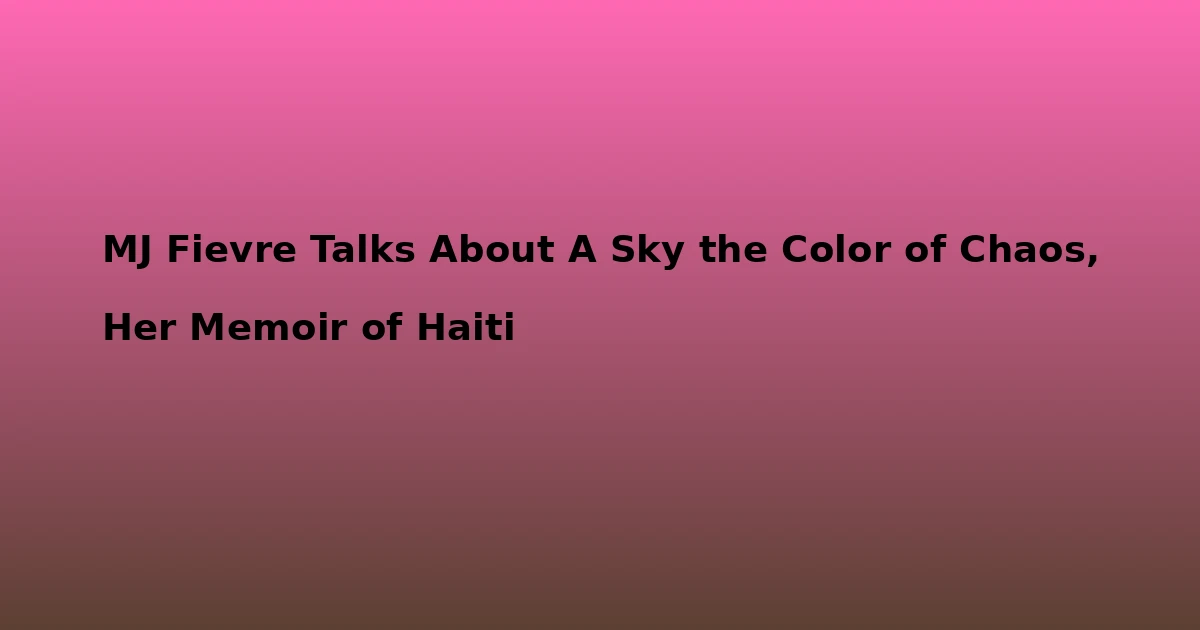Christina “Krissy” Julme, the founder of BèlNègès, sporting a tee proclaiming one of the brand’s philosophies.
Check out this conversation Kreyolicious had with her in regards to BèlNègès. She also discussed what girls and young women are up to Haiti—and of course the BèlNègès movement in general.
If you missed PART 1, CLICK HERE TO READ AN OVERVIEW OF THE BÈLNÈGÈS MOVEMENT.
Kreyolicious: Can you recall certain incidents that happened in your early childhood that made an impact on how you perceived beauty?
If we’re going to be talking incidents, there were plenty. But before discussing them, I’d like to tell all the BèlNègès who are reading this article not to let anyone define who they are. You’re never going to be good enough for the majority of the people you’ll come across in your life—and some of the ones you’ll never come across.
They will always want you to fit their own mold. It’s not easy, but learn to accept yourself as you are, and work on falling in love with yourself each and everyday and work towards the sort of beauty that’ll never go out of style.
My mom has always told me that when I was born, I was so dark that the midwife nicknamed me Dezèmit. Dezèmit was a woman who lived in our neighborhood. Everybody knew that she was a lougawou, and what was said to me, was that she was the color of charcoal and that she was quite ugly.
Even now when I go back to my old neighborhood people will not call me by my real name, but by that name. I was the skinniest person in my household, and at practically every school I attended. I can’t even begin to tell you how much they used to tease me. But that never affected me that much, because ever since I was a little girl, I loved the image that starred back at me in the mirror.
Now that I’m grown, I’m even more [in love with myself]. You think I’m pretty? Well, thank you.
You don’t think I’m pretty? Well, thank you. I never resigned myself to thinking that my self-worth was based on people’s perception of my looks, and whether they’d accept me—or not—based on that.
How people see me has less than 0.1% to do with the big picture. And this is why, I think it’s seriously important to show girls and young women early on to love themselves as they are. And to concentrate on what’s important, as opposed to what people’s eyes can see.
Krissy, the Head BèlNègès poses with those whom she call bonego, the male readers and fans of BèlNègès.
Kreyolicious: From what you’ve observed, what effects does social media have on young girls in Haiti?
The media and social media have a big influence on the world. They don’t call it the Fourth Power for nothing. They can destroy, but at the same time they can destroy. It’s true that we’re dealing with an audience that’s very emotional, very gullible, and very visual—but if we give that audience a choice—that is, if we create something good that they can read, see, listen and visualize—we’ll have to work less work to do towards creating the world we all dream of.
Kreyolicious: You write your articles in Creole.
Language is the best tool to unite us. Language is there to help one create, reflect, exchange and share more. But in order for that to be done, there has to be some structure in place on a national and international level linguistics-wise.
Things should be done in the [Creole] language to give it importance, to reinforce its use, to give it value, to enhance it. This way, more people will engage in it. This way the language can have a much more significant representation. That’s what happened with English as a language for many years, and now English is dominant in the majority of countries of the world.
There’s no better way to reinforce to young girls living in Haiti how important it is to love themselves as they are, than to speak to them in their native language, which is Creole. It’s in in this language that we express ourselves the most effectively. It’s in that language that we don’t struggle to make ourselves understood.
It’s Creole that correctly translates our realities. It represents us. That’s why the foremost language on BèlNègès is Creole. But there’s going to be a time when we’re going to [communicate in other languages] to reach out to the other bèlnègès, who aren’t Haitian.
Christina “Krissy” Julme in an outtake from a BèlNègès portrait shoot.
Kreyolicious: How do you personally define beauty?
I think that’s the best question from this entire interview. To me, no one can truly see your beauty. But everyone can feel beauty, and feeling that someone is beautiful is the best feeling ever.
That sort of beauty can’t be seen by the naked eye. Beauty is what you feel, or what you can make someone else feel. This beauty can be felt when you haven’t combed your hair, when your teeth isn’t brushed yet, when you’re not wearing heels…when you don’t have fake nails on…whether you are in pajamas or without clothes on.
Beauty is strength and determination that someone has to work towards what she believes in, even when the whole world is standing in the way. Beauty is knowledge and ability a person has to create a better life.
Beauty is the way you treat others…with love, with wisdom—without a sense of competitiveness—even when the other person doesn’t deserve it. With beauty, we can change our lives and help others in our circle change their own lives.
A BèlNègès event in Port-au-Prince puts everyone in a fab mood.
Kreyolicious: What’s the state of Haitian girls in Haiti?
It’s been about 10 years since I was in need of some motivation to boost up my morale…to make me feel like I’m really living…to help me improve my life. I couldn’t find it in my circle or in my surroundings, or on the internet. At the time, we didn’t have widespread use of the internet the way we do now.
But today, BèlNègès has been created for all the girls and young women in Haiti…so that they know they’re not alone. So they know there are people in the same situation as they are, but who are determined to fight to change their lives. It’s not that we’re not aware of how difficult life is for girls in Haiti.
We just choose to focus on where we’d like to be, instead of complaining about existing problems. Alone we can go far, but if we hold hands and walk together, we’ll go even further.
There’s hope for all the bèlnègès in Haiti and all over the rest of this earth.
Kreyolicious: What influences do you feel television programming in Haiti has on young girls in Haiti?
Personally, it’s been more than three years since I’ve watched television—whether Haitian television or foreign broadcasting. I can’t really be critical nor opine on anything. All I can say is, the media has a lot of work to do when it comes to leading positive change in our world. So, I’d like to tell all the bèlnègès out there to be patient, as BèlNègès is working hard for you in regards to that aspect.
Kreyolicious: There’s been some observers who have labeled natural hair enthusiasts Nazis, of course after the police force who were adherents of Adolf Hitler, because they think they go overboard when it comes to the natural hair movement. What do you think?
The word “Nazi” is too harsh. But as should be expected when you’re going down the road to self-improvement, you’ll always going to come across as too aggressive to some people. So, it’s normal for some people to feel that the natural hair movement is going too far. It’s because they don’t know or want to accept the hidden history behind the hair that grows out of our scalp.
BèlNègès has expanded from a website to a brand that includes handbags, tee-shirts, and even a conference and events.
Kreyolicious: What female figure do you admire the most?
The woman I admire the most, is the woman I’d like to become one day. The woman who’ll be so intelligent that she’ll be able to use that intelligence towards changing the lives of others in her circle. The woman who’ll believe in herself, but who at the same time doesn’t try to bring down anyone—nor does she try to be in competition with others. The type of woman who’s strong, and who will use her strength to support others who have yet to discover their own strength.
If there is a woman who inspires me, I’d have to say first and foremost it’s my mother.
She’s a woman who left her hometown of during the Macoute years, who didn’t know how to read and write—and yet raised six kids in Haiti—and sent them all—with no help from no man or from the government, though that would have been nice—to college.
Christina “Krissy” Julme at an event in Petionville highlighting BèlNègès.
Kreyolicious: Where do you hope to take BèlNègès?
Bèlnègès is going to get where it needs to be with no help from me. That’s because it’s a project that’s bigger than everyone involved with it. The work is plenty, there’s a lot of obstacles, but we’re going to continue fighting so that one day a little girl or a young woman can have somewhere to turn to, when she feels like the world is trying to swallow her. So she can have the means to help her take action and take her life to another level.
Dear Kreyolicious cheries…to read other articles about what’s happening down in Haiti, and about figures emerging out of Haiti, CLICK HERE.
Last Updated on December 2, 2025 by kreyolicious



